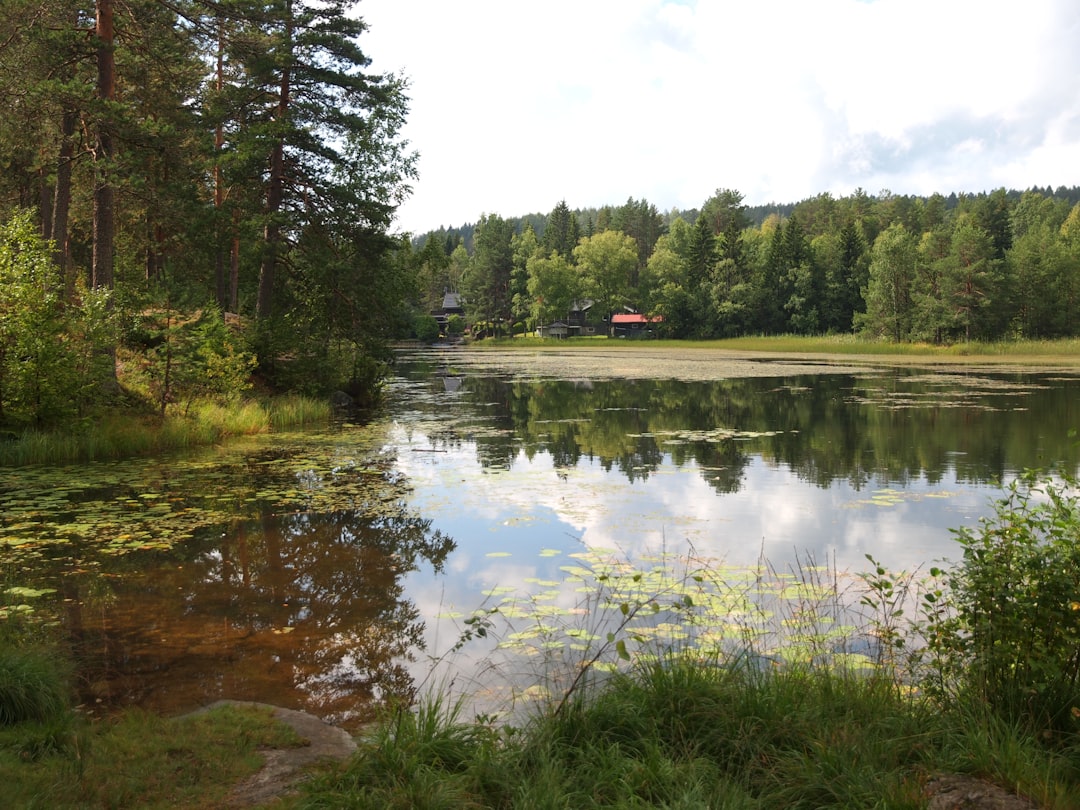Loneliness is a growing concern in Norway, a country often celebrated for its high quality of life and strong social welfare systems. Despite these advantages, studies indicate that a significant portion of the population experiences feelings of isolation and disconnection. According to recent surveys, nearly one in five Norwegians report feeling lonely at least occasionally, with this figure rising among specific demographics, such as the elderly and young adults.
This paradox of loneliness amidst a backdrop of affluence and social support highlights the complexity of human relationships and the challenges faced in maintaining meaningful connections. The prevalence of loneliness in Norway is not merely a personal issue; it has broader societal implications. As a nation that prides itself on egalitarian values and community spirit, the existence of widespread loneliness raises questions about the effectiveness of existing social structures.
The Norwegian government and various organisations are increasingly recognising the need to address this issue, as loneliness can lead to a range of negative outcomes, both for individuals and society as a whole. The Norway Relocation Group can play a pivotal role in helping newcomers navigate these social landscapes, providing resources and support to foster connections and combat feelings of isolation. Plan your relocation with confidence. Book a personal meeting with the Norway Relocation Group today.
Summary
- Loneliness is prevalent in Norway, with a significant impact on mental and physical health.
- Factors contributing to loneliness in Norway include societal norms, technology, and lack of social connections.
- Social connections and community play a crucial role in combating loneliness in Norway.
- Government initiatives and support are essential for addressing loneliness in Norway.
- Technology can foster connections and reduce isolation, but it is important to consider its role in combating loneliness.
The impact of loneliness on mental and physical health
The impact of loneliness on mental and physical health is profound and multifaceted. Research has consistently shown that individuals who experience chronic loneliness are at a higher risk for various mental health issues, including depression, anxiety, and low self-esteem. The emotional toll of feeling disconnected from others can lead to a vicious cycle, where loneliness exacerbates mental health problems, which in turn further alienates individuals from their social circles.
This cycle can be particularly damaging in a society like Norway, where the expectation of social engagement is high. Moreover, the physical health implications of loneliness are equally concerning. Studies have demonstrated that loneliness can lead to increased stress levels, which may contribute to cardiovascular diseases, weakened immune systems, and even premature mortality.
The physiological effects of loneliness can manifest in various ways, from sleep disturbances to chronic pain. In light of these findings, it becomes clear that addressing loneliness is not just a matter of improving social interactions; it is essential for safeguarding overall health and well-being.
Factors contributing to loneliness in Norway

Several factors contribute to the prevalence of loneliness in Norway, each interwoven with the fabric of modern life. One significant factor is the increasing mobility of the population. As people move for work or education, they often leave behind established social networks, making it challenging to forge new connections in unfamiliar environments.
This is particularly relevant for expatriates and newcomers who may find themselves isolated in a new country. The Norway Relocation Group can assist these individuals by providing guidance on how to integrate into Norwegian society and build meaningful relationships. Another contributing factor is the rise of digital communication.
While technology has made it easier to connect with others across distances, it has also led to a decline in face-to-face interactions. Many Norwegians find themselves engaging more with screens than with people, leading to superficial connections that do not fulfil deeper emotional needs. This shift towards digital communication can exacerbate feelings of loneliness, as individuals may feel more isolated despite being “connected” online.
Addressing these factors requires a multifaceted approach that encourages genuine social interactions while also leveraging technology to foster connections.
The importance of social connections and community in combating loneliness
Social connections and community play a crucial role in combating loneliness. Humans are inherently social beings, and our well-being is closely tied to our relationships with others. In Norway, where community spirit is highly valued, fostering strong social ties can significantly mitigate feelings of isolation.
Engaging in community activities, joining clubs or organisations, and participating in local events can provide individuals with opportunities to meet new people and develop meaningful relationships. Moreover, the sense of belonging that comes from being part of a community can enhance overall life satisfaction. When individuals feel connected to others, they are more likely to experience positive emotions and have better mental health outcomes.
The Norway Relocation Group can facilitate this process for newcomers by connecting them with local groups and activities that align with their interests, helping them establish roots in their new environment.
Government initiatives and support for addressing loneliness in Norway
The Norwegian government has recognised the importance of addressing loneliness as a public health issue and has implemented various initiatives aimed at fostering social connections. These initiatives include funding for community projects that promote social engagement, as well as campaigns aimed at raising awareness about the impact of loneliness on mental health. By prioritising this issue, the government acknowledges that combating loneliness requires collective effort from all sectors of society.
In addition to government initiatives, local municipalities often play a vital role in addressing loneliness through targeted programmes and services. These may include support groups for specific demographics, such as seniors or young adults, as well as community centres that offer activities designed to bring people together. The Norway Relocation Group can help newcomers navigate these resources, ensuring they are aware of the support available to them as they seek to build connections in their new home.
The role of technology in fostering connections and reducing isolation

While technology has been implicated in contributing to feelings of loneliness, it also holds significant potential for fostering connections and reducing isolation. Social media platforms, messaging apps, and online communities can provide individuals with opportunities to connect with others who share similar interests or experiences. For newcomers to Norway, these digital tools can be invaluable for finding like-minded individuals and establishing friendships before even stepping foot into a new social environment.
Moreover, technology can facilitate access to resources that promote social engagement. Online platforms can help individuals discover local events, clubs, or activities that align with their interests, making it easier to meet new people. The Norway Relocation Group can assist newcomers by providing information about relevant online resources and encouraging them to leverage technology as a means of building connections rather than allowing it to contribute to their isolation.
Strategies for individuals to overcome loneliness in Norway
Overcoming loneliness requires proactive strategies that encourage individuals to seek out social connections actively. One effective approach is to engage in activities that promote interaction with others. This could involve joining clubs or groups centred around hobbies or interests, volunteering for local organisations, or participating in community events.
By immersing oneself in social settings, individuals can create opportunities for meaningful interactions that may lead to lasting friendships. Additionally, cultivating an open mindset towards meeting new people is essential. This may involve stepping outside one’s comfort zone and initiating conversations with neighbours or colleagues or attending social gatherings even when feeling hesitant.
The Norway Relocation Group can provide valuable support by offering guidance on how to approach these situations and connect with others effectively.
The significance of cultural and societal norms in addressing loneliness
Cultural and societal norms play a significant role in shaping how individuals experience and address loneliness in Norway. Norwegian culture places a strong emphasis on egalitarianism and community values; however, this can sometimes lead to an expectation that individuals should be self-sufficient and not burden others with their feelings of isolation. This cultural backdrop may discourage some from seeking help or expressing their struggles with loneliness.
To combat this stigma, it is essential to foster an environment where discussing feelings of loneliness is normalised and encouraged. Community initiatives that promote open dialogue about mental health can help shift societal perceptions and create a more supportive atmosphere for those experiencing isolation. The Norway Relocation Group can contribute by facilitating discussions around these topics among newcomers, helping them understand cultural nuances while also encouraging them to share their experiences.
The importance of mental health support and resources for those experiencing loneliness
Access to mental health support is crucial for individuals experiencing loneliness. Professional help can provide valuable tools for coping with feelings of isolation and developing strategies for building connections with others. In Norway, there are various resources available for those seeking mental health support, including counselling services and helplines dedicated to addressing issues related to loneliness.
Furthermore, community-based support groups can offer a sense of belonging for individuals grappling with similar experiences. These groups provide safe spaces for sharing feelings and receiving encouragement from others who understand the challenges associated with loneliness. The Norway Relocation Group can assist newcomers by connecting them with appropriate mental health resources tailored to their needs.
The role of family and friends in combating loneliness
Family and friends play an indispensable role in combating loneliness by providing emotional support and companionship. Strong relationships with loved ones can serve as a buffer against feelings of isolation, offering comfort during difficult times. In Norway’s close-knit communities, maintaining these connections is vital for overall well-being.
For newcomers who may be far from their families or friends, establishing new relationships becomes paramount. The Norway Relocation Group can help facilitate this process by encouraging newcomers to reach out to existing networks or engage with local communities where they can form new bonds. By fostering connections with others who share similar experiences or backgrounds, individuals can create a supportive network that helps alleviate feelings of loneliness.
Long-term solutions for addressing loneliness in Norway
Addressing loneliness in Norway requires long-term solutions that encompass individual efforts, community engagement, and government initiatives. A comprehensive approach involves creating environments that foster social connections while also providing resources for those struggling with isolation. This includes promoting awareness about the importance of mental health support and encouraging open discussions about loneliness within communities.
Furthermore, ongoing collaboration between government agencies, non-profit organisations, and community groups is essential for developing effective programmes aimed at reducing loneliness across various demographics. By prioritising social engagement as a public health issue, Norway can work towards creating a society where individuals feel connected and supported. In conclusion, while loneliness remains a pressing issue in Norway, there are numerous avenues through which individuals can seek support and foster connections.
The Norwegian Language School (NLS) offers courses designed not only to teach the language but also to immerse students in Norwegian culture—an essential step towards building relationships within the community. By learning the language and understanding cultural nuances, newcomers can better navigate social situations and establish meaningful connections that combat feelings of isolation. With the right resources and support from organisations like the Norway Relocation Group and NLS, individuals can take proactive steps towards overcoming loneliness and enriching their lives in this beautiful country.

